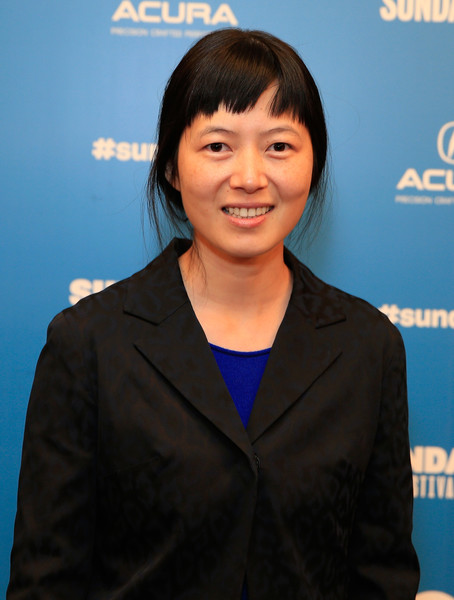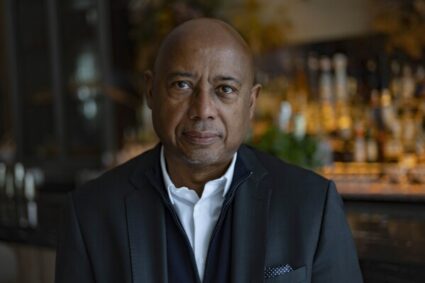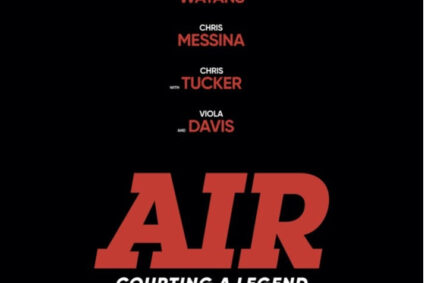
On this edition of INTERVUE, a new documentary uncovers the fascinating untold history of China’s One-Child policy and the generations of parents and children forever shaped by this social experiment. The documentary is One Child Nation from Amazon Studios. I sat down with the movie’s co-director Jialing (Lynn) Zhang to discuss this powerful film.
So, what was it that made you feel that this was the right time to get your documentary out into the world?
Yeah, so my co-director Nanfu Wang and me work on this project. When we started, it was already 2016. China started a two chid policy already. So, at the time, yeah, when we started working on this project, China’s media was all about the success of the one child policy as very celebratory. That’s when I researched, because we saw we’re very familiar with the topic, but when we researched, we were so shocked by all the stories we found. Even though we grew up in China, we sometimes heard reports about forced abortions and sterilizations, but were never able to see the big picture because we live in China and this of the one child policy, that everything looked so perfect. But then we started to work on this film, we were so shocked at the scale of all the human rights violations and then we decided it was a sense of urgency at that time, even if China has ended the one child policy. Then we decide to work on this film.
I saw that there was some archival propaganda footage. Now, how did you find the footage that populated the Chinese billboards, sidewalks and ads that were on tv for nearly thirty years before some of it became “erased” in 2015?
Yeah, so growing up, there’s so many of this propaganda footage like posters and tv, and videos online and everywhere. But then we started to work on the film and it’s still there, but it’s getting harder and harder to find. But we found a lot of them online, and then we went to the libraries in China, and then we also met a professor. He collected a lot of propaganda materials, and he hoped that one day, he will be able to open a museum in China about One Child Policy.
So, he had the purpose in mind and he collected all those souvenirs, posters and post cards, matchboxes, calendars, everything. And then he showed us all this and we filmed them in his living room, and that professor, we didn’t end up including his story in the film, but he is a very good source and he gave us a lot of insight. He’s also a victim of the one child policy, because he had a second daughter and he got fired from his job, and then he paid fines and then was able to go back to school, but then he couldn’t teach. He paid a price for having a second kid.
I see. Now along those lines, how strict was the policy enforced, for those of us who did not know—especially since this happened forty years ago and just ended a few years ago—how strict was the policy since you said he lost his job, he was ostracized for having a second child?
The government used a combination of incentive and punishment so people would only have one child, give them a laptop, housing, pensions, in-school caring, it depends in different provinces. So they’re also getting awarded certificates, “Only Child Parents” honorary certificate. There are a lot of incentives for people to only have one child, but at the same time, there’s punishments. A lot of times it can be high fines, it can be three to six times of last year’s annual income. That’s a lot. So yeah, they’re afraid to have more than one child. Also, after the woman has her first child and the government required them to have an IUD inserted, it’s mandatory. And then in China—
Wait, did you say it’s mandatory?
Mandatory; it’s required.
Oh.
I recently met a woman living in the US, she told me when she had an IUD, the doctor didn’t care to tell her; just put it in her. And then the government, if you live in a city, the company required you to share your status so it’s hard to get away with it. It says to carry the baby to full term. The government will just keep harassing you until you have the abortion. Some people went into hiding and they would lose their jobs. In the countryside, the property would get taken away, and their house got demolished and that happens a lot.
From what I understand from when I watched the film, they dedicated books to children, telling them about the one child policy, and I want to know how important was it to feature men and women who were born into that policy?
Almost everyone in China is effected by the one child policy in different ways. In our film, we talked to different men and women, some of them were officials who enforced the policy, and some of them are victims. There are so many different people effected by the policy in different ways. So, in the beginning, it was like we saw enforcer policy. At some point, we just start to realize even they are the victims too, so you cannot get away with it. And there are so many other stories that we tried to include, but because it’s a documentary, we could not—it’s hard to get every angle of people who cannot find wives because of the gender imbalance, because there are too many men for one woman now.
Let me ask a question about that. How many women were there to men when it came to this policy?
How many were in the data?
Yeah, like 10-1, 20-1?
So, there’s 30 million more men than women now in China, I think. It’s a consequence of the one child policy, because of selective abortion that people tend to—people want to have a boy and they can only have one child, so they selected aborted a girl, female fetus, yeah.
Wow. So, what were the advantages and difficulties on working on a project that’s really personal to the director but also personal to you?
So, our film featured stories and Nanfu Wang’s family. She’s my co-director and also her journey to uncover the consequence of our policy. For her, I think the advantage is they are her family. She interviewed people from her village that know her and are willing to talk to her to begin with, but actually, it’s not easy. It’s not like, for her to even have the courage to bring up the request to her uncle and to her aunt. They never talk about their experience. The uncle hid his daughter in a market and her aunt gave away her daughter to a human trafficker.
So they never talk about it in the family. It’s a lot of shame and it’s a lot of wounds to open up and for Nanfu to ask questions, it takes a lot of courage.
Interesting. Was it very difficult to balance the personal stories with the political side of the story?
Yeah, that’s one of the main challenges with facing editing, because we want to talk about Nanfu’s past and focus on her journey, because that’s where all the emotion comes from, and the film as her arc. At the same time, we interviewed so many other people that they all have great stories, and we just have to make a lot difficult decisions to edit out, because we want to focus on the arc of Nanfu’s story and bring the emotion to the foreground.
Absolutely, because it actually really made me think about the policy, especially since I never heard about it until now. So, tell us what it was like working with Nanfu on this project?
Yeah, because Nanfu, she made a previous film called Hooligan Sparrow, also a very politically sensitive topic in China. She hasn’t traveled back to China since we started the project. She hasn’t traveled back to China yet, after the release of Hooligan Sparrow.
Right.
So, it’s just like, the first challenge is how to get a film done without getting attention from the government while we’re working on it. So, at the beginning, I made more travel to China to do the research, and then later on, she went back to China with her baby in Chinese New Year. And maybe because it was Chinese New Year and she was there with her baby, and then nobody showed up to question her after she started taking more trips to China, but still we’re very cautious and we prepare every trip, every step, every hour very carefully, and our money to her location and real time and GPS. So we just need to prepare everything very carefully, because we want to get our film done before the government pays attention.
I take it it’s still a taboo subject within the government when you shot this film, correct?
You cannot criticize, because the one child policy is a national policy, in our constitution. You cannot criticize national policy openly in China.
Wow. How does it feel to have your project here at AFI DOCS?
Yeah, it’s a great festival. It’s the first time we’ll show it in D.C.
Nice!
Yeah, we’re so excited to show it to the audience.
What do you want people to think about as they leave the theater after watching your film?
I think we’ll the leave the film open so people can have different takeaways. Personally, for me, I think a lot about the relationship between individual choice and nation and gender because I always try to imagine myself in the situation of the character that we’re filming. It’s really scary, because what choice do I have in that situation? Because over the course of making the film, I have learned not to judge any of them, because they really don’t have a choice and everyone is a victim.
And then when the country is telling you to sacrifice everything for the better of the common good and you can’t even ask questions. Everything is in a propaganda. There’s a lot of shaming if you don’t follow the policy. So this national agenda and individual choice is a very complex topic, and I haven’t got an answer from making this film yet, but I want people to be aware of this power of brainwashing.
One last question. What do you want to say to a person who wants to be a filmmaker? What advice would you give?
Follow your instinct and just keep working. A lot of times, people will just tell you otherwise. Just be honest to yourself. It’s hard to be a filmmaker. You take a lot of risk; financial risk. And also physical risk and safety. You just need to be persistent. Persistence is very important.
One Chi


